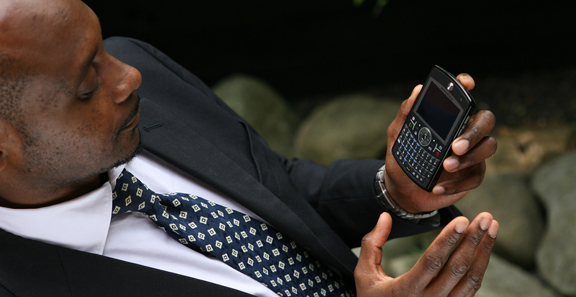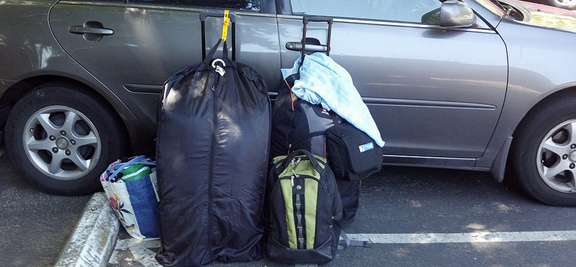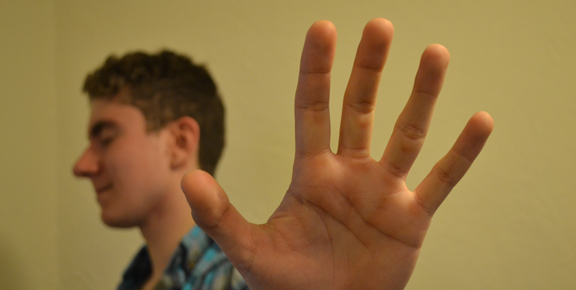Even if we have a right understanding of the importance of time stewardship, it is still difficult to know how to best prioritize and manage this finite resource. As a first step, we should honestly ask ourselves, “Are we addicted to busy?” Read this short blog post by Brady Boyd, in which he shares a personal story and offers helpful indicators of dangerous busyness (Source).
“Are We Addicted to Busy?”
Five years into my marriage, my wife met me at the door with her bags packed.
I should have seen it coming. I had packed my life with jobs and positions and commitments out of my deep-seated need to be needed. I was too busy, and the gentle, calm woman I’d married five years prior had decided she would rather be single than be married and do life all alone.
“Pam,” I said, my voice low and my words slow, “if you will stay here tonight—if you will agree not to leave tonight—I will walk in tomorrow and resign.” The red rims around her eyes told me she’d been crying all afternoon. “No, you won’t,” she challenged. “You won’t.” I asked for 24 hours, to prove that I’d make good on my plan. And by that time the following day, I had resigned every last role.
That was one of the first times I realized I have a problem: I’m addicted to being busy.
And it’s not just me. Every problem I see, in every person I know, ultimately is a problem of moving too fast for too long in too many aspects of life. Every problem. And I’m a pastor, so I see a lot of problems.
We think if we can keep going, keep busy, keep plowing ahead, our conscience won’t have time to catch us because—ha, ha!—we’ll already be long gone.
And the reality is this approach actually works. But only for a time. “Life is like the breath,” writes Brother David Steindl-Rast. “We must be able to live in an easy rhythm between give and take. If we cannot learn to live and breathe in this rhythm, we will place ourselves in grave danger.” Maybe even the literal grave.
Because it’s easy for me to chase after the tempting buzz of busy living, I’ve learned to recognize the signs that my addiction has kicked in again. If you lean toward over-scheduled and under-rested, consider these danger signs of a busyness addiction:
You Feel Like You’re in Your Glory When You’re Busiest.
This really should be the first clue that something is amiss. You see, I like how success feels. I don’t want to unplug. I don’t want to relax. The last thing I crave is rest. I’m a recovering speed-and-wild-success junkie who never wants to come down, and to allow any semblance of white space is to cause the undesirable effects of withdrawal.
You’re More Fascinated With Gadgets Than With God.
I got to work a few days ago and realized I’d left my phone at home. The all-out search that proved futile and the ensuing overwhelming angst I experienced were significant. I think I was more distraught than if I’d misplaced one of my children. How am I going to get through this day without my phone? I thought.
A different kind of call was coming in, even as I searched for the device. It was a call from God: “Come to me, and I will give you rest.” Of course I didn’t pick up.
God tried again: “Lay your burdens down, child. Walk with me, and your walk will be burden-free.” To which I didn’t respond. Again.
God stays the course: “I want you to be fascinated not with trinkets, but with me.” Still, no response.
Ever-patient, ever-persistent, God went for it a fourth time: “Slow down. Look up. Linger here with me.”
It was then I thought I heard something. Wait. Was that the voice of God?
But then, I hear a subtle ding from my phone, which had been in my laptop bag the entire time. The ding was alerting me to a text message that had just arrived. My thumb couldn’t help itself—it was itching to swipe. As I reached for my phone, all attention focused on that new text, I simultaneously scored one for the enemy of my soul.
Technology is not a bad thing in itself, but when we’re more tuned into our iPhone alerts than to our Creator, it’s a problem.
Your Favorite Compliment Has Become, “Wow. You’re Always so Busy.”
Behind the “I’m-so-busy-it-would-blow-your-mind” conversations is the motivation for all my busyness. I have a theory on this, which is that busyness is our means to impress. If I’m busy, then I’m important, and if I’m important, then you’ll be impressed. That’s the reason I spend so much time being busy: to impress you, so perhaps I’ll feel like I matter. Impression management becomes a full-time job, and it’s exhausting.
You Don’t Have Time for the Ones You Love.
These days, years after that day of packed bags at the door, I don’t let things get that far. But still there are times when I can see in my wife’s weary gaze that I’ve been pushing and driving too hard. It’s the worst warning sign of all, I think, the one that says, “You’re hurting the ones you most love.”
For some people, it takes a world-rocking tragedy or the loss of everything they hold dear in order to finally learn how to slow down, to tend to their souls, to rest—it takes some sort of death. I hope that won’t be true for you. I’m determined it won’t be true for me. I’m resolving instead to go down a different path, a path paved with rest and peace.
Consider this: God is not merely a peaceful person; God, in fact, is peace. When you and I sit in God’s presence, we’re sitting in the presence of peace. And when we sit there—actually stay there, quiet, still—we come away breathing differently. We come away with steadied souls. From there, astoundingly, we can become people of peace. We can become more like God.
This is why God’s invitation is so profound, the invitation to come to Him to find our rest: He can actually deliver on what He promises, something the world never will be able to do.
I want this type of restfulness. I want to say yes to this.
We slow down—to rest, to contemplate, to lollygag with God—because slow can pay serious dividends, for our bodies, for our minds, for our souls.
—-
Sometimes, the most responsible thing you can do is say “no” to an opportunity or give up something. In the following article, “The Divine No,” Alice Fryling offers her own set of warning signs, and she challenges her readers to obediently experience God’s design for a balanced life (Source).
“The Divine No”
If I were a prophet, in the Old Testament tradition, I would put on my long robes, gather a crowd, and call out, “God says ‘No!’” I would lean over and point my finger at the distraught pastor who cannot bear the burdens of her congregation, and I would say, “Let’s go.” I would look at the harried mother hurrying from the office to the day care center to a PTA meeting, and I would say, “Don’t go!” And I would grab the tired executive who was all week on a trip, came home to kiss the children, and is now on his way to the church baseball league, and I would put my face close to his and say, “Slow down!”
Indeed, there are prophets in our day who are saying just that. Richard Foster in Freedom of Simplicity calls Christians to a life of simply doing what God wants, rather than being pushed and pulled by inward and outward demands. He quotes Thomas Kelly, “We have seen and known some people who seem to have found (a) deep center of Living, where the fretful calls of life are integrated, where no, as well as yes, can be said with confidence.” Foster describes that confidence as simplicity. It could also be a more difficult act of obedience than saying yes.
When I say no to a good idea for the sake of a better idea or activity, I am acknowledging that I am a creature rather than a creator. I cannot do everything that comes before me. Even good ideas, if they are not the will of God for me, can become the vehicles of pride, sin, fatigue, and depression.
Rather than take responsibility for these symptoms of imbalance, we often blame God for our busy lives. How many times have we heard, “Oh, I am just so busy (doing good deeds, Christian services, and fulfilling spiritual obligations).” I suspect that our busyness stems from complications we have brought into our lives (our homes, social and political clubs, gardens, even some employment). But even if we could prove our busyness is only doing “God’s work,” it is blasphemous to imply that our loving Father wants us to do more than He has equipped us to do.
Common to the lifestyles is a “bless-this-mess” syndrome. It goes like this. I see a need. Or I have an idea. Or some one taps me for a project. Without carefully evaluating the request for my time, I say yes because I like to help people, I like to be creative, and I don’t like to let people down. Then when the going gets rough, I ask God to bless me anyhow. “Please help me to make it. Take care of my health, my family, even my prayer life so I can make it through this crisis.” In other words, “Please, Lord, bless this mess.”
Everyone gets into predicaments like that occasionally. But when one crisis bumps into another, we need to stop and see what God wants for us. How can I hear the still small voice of God when I don’t even have time to pray? How can the breeze of the Holy Spirit sweep into my life when I am stirring up endless dust storms on my own?
Frequently these predicaments arise because we fail to acknowledge that in saying yes to one activity, we are pre-forced to say no to another. We simply cannot do two things at once. This is clear in Paul’s famous “Macedonian call” (Acts 16:6-10), which has been used at hundreds of missionary conferences to spur people on to service. While I would never discourage someone from following a true Macedonian call, it is interesting to note that twice Paul was told to say no, before he was told to go. “The Holy Spirit forbade him” to speak the word in Asia, and then “did not allow” them to go into Bithynia. If Paul had not said no to Asia and Bithynia, he might never have ended up in Macedonia. By saying yes to Macedonia, he was saying no to anywhere else at the time.
This may sound like simple mathematics. But consider the subtlety of one practical example. If I say yes to leading a Bible study, that study may take an hour to prepare and an hour to present. And if I want to befriend the people in the study, it may take another two to three hours to present. I may be very eager to do this, but if I do a good job, there will also be an emotional and spiritual drain, so that another hour or two of restoration is involved. So, my Bible study is from 9-10a.m. once a week means that I must say no to at least six hours worth of other activities.
Many of us will say yes to leading such Bible studies. But if we do, we may need to say no to other things—building the addition on our house, enlarging our garden, or even advancing at work. Or, we may decide we need to say no to the Bible study in order to give our time to something else. The issue is not just whether we want to do something or whether we are gifted to do it. While these things are important, the primary issue is whether or not it is God’s will for us at the time.
Does this sound obvious? It is only so on paper. In order to say no to something we want to do, we almost always have to let go of something we value.
Peter, in Acts 10, went through a reorientation of values when God told him to go meet Cornelius, a Gentile. Peter said, “No, Lord, I have never….” When God tells us to slow down, we might say, “No, Lord, I have never turned down on a call to serve. I have always been a busy person. I believe God is telling some of us that we need to let go of the value we place on service, availability and busyness, and take up the value God places on quietness, trust and peace.
Recently, I have had to let go of the high value I place on being available to friends. I do not love my friends any less, but when I try to befriend too many people at once, I find I don’t have the physical and emotional capacity I need. If I will not give up part of what I value, I end up giving up something I value even more. I become so enervated that I have little to offer any friends, my husband, my children or my Lord.
This “giving-up” is a very painful process. It is a dying to myself. I really feel good saying yes to requests for my time and talent. But that immediate reward soon tarnishes if I am expending my energies on things God has not called me to do.
Our unwillingness to say no may be a modern form of idolatry. We enthrone our own desires, our pride, and the lure of appearing busy. It may be that we still feel that we must prove ourselves to God by doing good works. Perhaps it is just too painful to sit down alone and face our limitations. We need to be ruthless if we find ourselves always too busy, too tired, or too discouraged. In the name of the Christian witness or service, we may have abdicated our responsibility to consider what opportunities are God’s will for us, and what ones pull us away from higher priorities.
The author of Hebrews spoke strongly to those who fail to enter the rest of God. “For the good news came to them: but the message which they heard did not benefit them, because it did not meet with faith in the hearer” (Heb. 4:2). The good news God gives us about our lifestyle is that “in returning and rest you shall be saved; and in quietness and in trust shall be your strength” (Is. 30:15). “It is in vain that you rise up early, to go late to rest, eating the bread of anxious toil; for he gives to his beloved in sleep” (Ps. 127:2). “God is not a God of confusion but of peace” (I Cor. 14:33). If we fail to experience peace, order and quiet in our lives, it is our fault, not God’s.
A life of peace and simplicity is not a life of leisure and self-gratification. If that is our goal, we “ask wrongly, to spend it on our own passions” (Jas. 4:3). If we find leisure and gratification in our lives, they are gifts from our loving Father, to refresh us and enable us to fulfill His calling. It is clear in Ephesians that God has good works planned for each of us to do. In our busy, complex culture, we need to pray for the courage to do only those good works. It takes courage to be simple. Sometimes, it is embarrassing because we misunderstood. Always it takes the glory away from ourselves and gives it to the Father.
Discerning between what is the will of God and what is not is the critical issue. Much has been written about how to know the will of God. Perhaps something should be said about how to know what the will of God is not. I would like to suggest five symptoms of the lifestyle, which may mean that the will of God is not being done.
(1) If your inner life is seldom joyful, seldom peaceful, seldom ordered, then you are not living in accordance with Scripture.
(2) Your children, those who look to you for emotional and spiritual support are frequently lonely, discouraged or disappointed, it may be that you are not available to be used by God in their lives.
(3) If, as you consider an activity, you feel overwhelmed emotionally or experience physical signs of stress (stomach tightening, extreme fatigue, headaches), you need to STOP and ask God quietly if this is His will for you. Not all that God wants us to do is easy, but we are taught to test the spirits (I John 4:1), and it may be that God will use physical and emotional signs to indicate a false spirit prompting us to do something.
(4) If you are too busy to pray about an activity, you are too busy.
(5) If you are too busy to handle an occasional interruption or emergency, you are too busy. Have you ever wondered why prison interrupted Paul’s ministry? Perhaps God used it to slow down Paul so that he would write letters to the churches. “A man’s mind plans his ways, but the Lord directs his steps” (Prov. 16:9). If your schedule is so tight you cannot meet the unexpected with confidence, then you are too busy.
Crisis, stomach pains and unhappy… the best ways to learn God’s will. I find that virtually every day of my life there is more to do than time to do it. Not everyone is like that, but for those of us who are, we need to figure out how to choose between what is God’s will for us and what is not.
One day I made a list of my expectations for a given week. Then I listed the numbers of hours I had at my disposal. My expectations exceeded reality by almost ten hours! That means that I was expecting to do ten hours of activities which were not God’s will for me. What a sobering, painful conclusion. But what freedom it brought to come to the Lord and say, “What is it that you don’t want me to do?” It is God’s gift to us to be able to work hard, every day, in His service, and not live with a sense of unfulfilled expectations.
One of the reasons we have so much difficulty experiencing this gift is that we have taught ourselves to live in crisis. A crisis may motivate us to action more than a desire to please God. How much better to come to Him freely, and frequently, motivated by a desire to do His will rather than survive a crisis.
In this regard, I know of no adequate substitute for the daily quiet time. Because of my tendency to want to do more than I can, I desperately need to be confronted with God’s thought in Scripture each day, and to be very quiet before Him as I sort out His will. If my days seem to be more than I can bear, I dare not leave my devotions until there is a sense of order and peace. Perhaps I need to go through the pain of giving up an outdated value, a selfish desire, or a pressure I feel from some source other than God.
“Come to me, all you who are weary and burdened and I will give you rest. Take my yoke upon you and learn from me, for I am gentle and humble in my heart, and you will find rest for your souls” (Matt.11: 28-29). May God give us the grace to willingly live with the yoke we have acknowledged, to find rest, to find simplicity, to find His will only for our lives.














